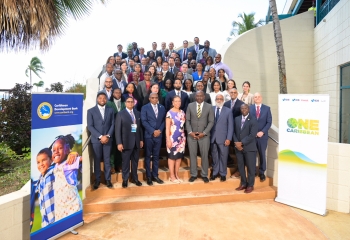CDB Funds Regional Gender Differential Labour Market Impact Study

The Caribbean Development Bank (CDB) has provided USD362,300 to fund a Gender Differential Labour Market Impact Study (GDLMIS) in 15 Caribbean countries aimed at narrowing the gender gap in the Region’s labour market post-COVID-19 pandemic.
The GDLMIS will include a baseline assessment of the socio-economic situation and labour market structure in the Region before COVID-19 and the pandemic’s direct impact on national output and fiscal spending, assess gender access to credit for Micro, Small and Medium-sized Enterprises and the implications for entrepreneurship, identify the most at-risk workers, and analyse policy response to identify gaps in design and implementation and solutions for improving gender equality. Data collected in the GDLMIS will inform decisions related to labour market shocks in times of crisis or rebuilding.
Countries that will participate in the study already have baseline data from previous Surveys of Living Conditions or Country Poverty Assessments.
Director of the CDB’s Economics Department, Mr. Ian Durant, noted that with only eight years remaining to 2030, Caribbean countries are hastening efforts to meet their sustainable development goals.
"Following on the overlapping economic, social, and trade crises, the focus on people, planet and prosperity has never been more relevant and even more crucial is ensuring equal and sustainable access to resources by disadvantaged and often disenfranchised groups such as women,” Mr. Durant said.
According to the World Bank's 2021 Latin America and the Caribbean (LAC) labour market impact study, women were 44% more likely than males to lose their jobs during the COVID-19 pandemic. Women are over-represented in retail, tourism, services, and hospitality industries, which lost 56% of jobs in the Region.
“This project highlights the Bank’s commitment to promoting gender equality and will allow CDB to produce more focused evidence-based projects, knowledge products, and services to enhance gender mainstreaming by providing the necessary data to inform existing projects,” Mr. Durant said.
The CDB's 2016 Country Gender Assessment Synthesis report found that despite higher rates of education, women in BMCs had higher unemployment rates and were in predominantly lower-paid occupations. This and other socio-cultural issues affect women's economic opportunities and life chances and are closely tied to the "female face of poverty".


